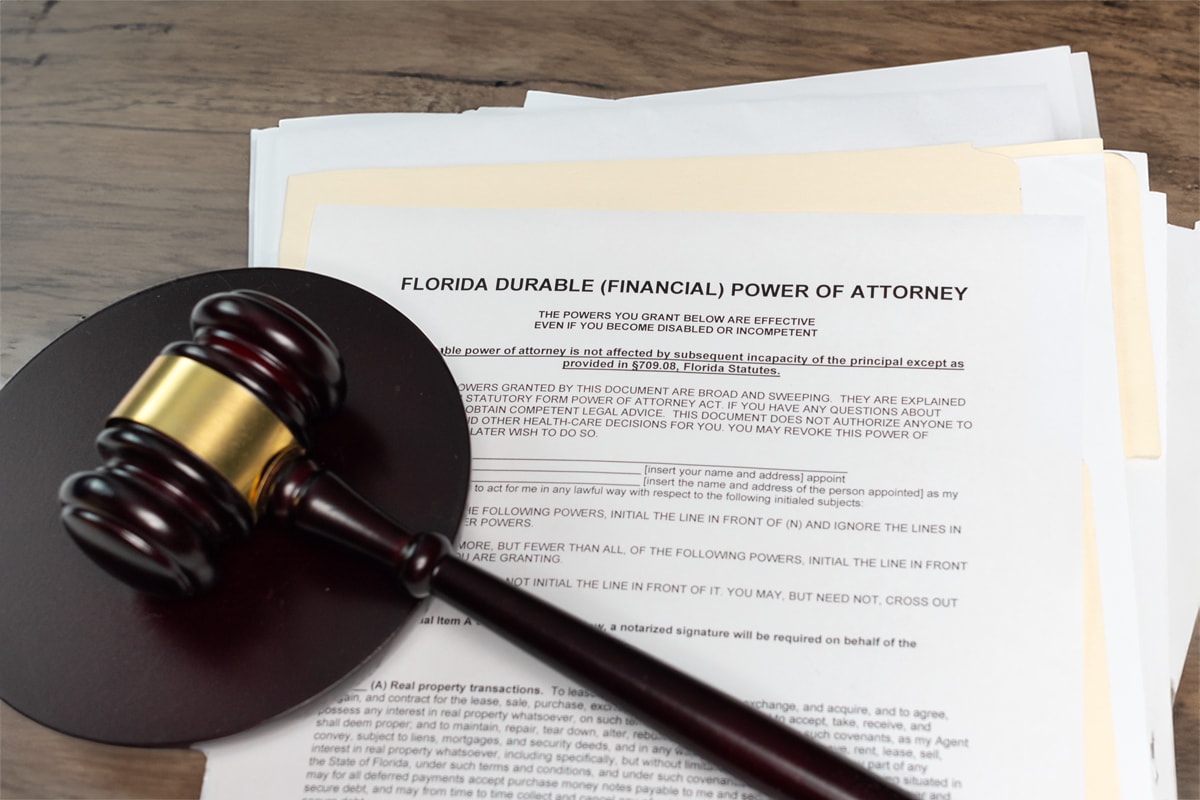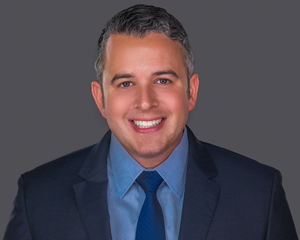Abuse of Power of Attorney
Those given the power of attorney (POA) to handle another’s financial or healthcare matters are in a position of great responsibility to act in that individual’s best interests. Unfortunately, there are times when these individuals betray trust, through manipulating the other person or using their assets for their own personal gain and not in the best interest of the other person. Because of this, it is important to be able to identify any potential misuse of power in order to ensure that the protected person’s interests are secure.
Types of Power of Attorney

As a legal document, power of attorney authorizes an individual (known as an agent) to act on behalf of the individual creating the document (known as the principal). Oftentimes, the agent is also the legal guardian of the principal. There are several types of powers of attorney, depending on the circumstances and needs of the principal. Below are the most common types of power of attorney:
General Power of Attorney – This is when the agent receives authorization to decide on all the aspects of the principles life until they pass away or are incapacitated.
Durable Power of Attorney – This is when the POA continues to be in effect even after the individual becomes incapacitated.
Limited Power of Attorney – The agent’s authorization for POA is limited by the principal in both time and scope.
Springing Power of Attorney – The POA goes into effect after a triggering event as defined by the document.
Medical Power of Attorney – The POA authorizes the agent to make healthcare decisions for them, especially ones that are life-or-death events.
Financial Power of Attorney – The POA gives the agent the power to manage the finances of the principal, which includes taxes, bank accounts and real estate transactions.
It should be noted that even though all powers of attorney documents have expiration dates, they can be revoked at any time for any reason. This means the principal doesn’t need to have a particular reason for termination of a power of attorney document, with the only requirement that they are of sound mind when doing so.
Penalties for Abuse of Power of Attorney
There are a number of different ways in which power of attorney can be abused. When someone accuses another person of POA abuse, it is a legal claim that the agent hasn’t been acting in the principal’s best interest. Typically, this involves theft, fraud, forgery, misappropriation, self-dealing or breach of fiduciary duty.
The most common examples of POA abuse includes the financial abuse of an elderly individual, especially when an agent takes funds from the principal’s account, or sells property for personal profit or transfers that property into their own name. Oftentimes the agent will attempt to give justifications for this abuse of power (such as paying off a debt) however it is never considered to be acceptable and there are legal consequences for abusing the power of attorney.
Agents who abuse their POA can potentially face a host of different civil and criminal charges. The severity of the charges will depend largely on the level of abuse, beginning with a civil lawsuit and possible compensation owed to the principal. In more serious POA abuse situations, this can also include criminal prosecution for embezzlement, fraud or exploitation, which can result not only in damages owed but also prison time for the offender.
Power of Attorney Fraud (POA Fraud)
POA Fraud, or Power of Attorney Fraud, occurs when someone abuses the legal authority granted to them through a Power of Attorney (POA) document.
Fraud happens when the appointed agent misuses their powers for personal gain or acts against the interests of the principal. This could involve the agent transferring money from the principal’s accounts without permission, selling property without consent, or making unauthorized financial transactions that benefit the agent at the expense of the principal.
Florida law requires that any actions taken under a Power of Attorney must be in the principal’s best interests. The state has specific statutes governing the creation and use of these documents, designed to prevent misuse. For instance, Florida requires a Power of Attorney to be signed by two witnesses and notarized, adding layers of verification to prevent fraud.
When POA fraud occurs, it can lead to significant financial losses and personal distress for the principal. Victims of POA fraud in Florida have legal recourse, such as revoking the Power of Attorney, suing for recovery of stolen assets, and pressing criminal charges against the fraudulent agent. Legal interventions ensure that the principal’s rights are protected and any abuses are addressed promptly and effectively.
Frequently Asked POA Questions
Q. What is considered misuse of power of attorney?
Misuse of a Power of Attorney (POA) involves any action where the appointed agent, also known as the attorney-in-fact, acts outside the legal authority granted by the document or against the best interests of the principal—the individual who granted the POA. This could include financial misconduct such as unauthorized transfers of property or funds, failure to keep accurate financial records, decisions that benefit the agent personally at the cost of the principal, or any actions that do not align with the principal’s specified wishes as laid out in the POA agreement. Such actions not only betray the trust placed in the agent but also potentially jeopardize the financial and personal well-being of the principal.
Q. How do you prove power of attorney abuse?
Proving abuse of a Power of Attorney typically revolves around demonstrating that the agent has acted beyond their given authority or against the principal’s interests. This process involves examining detailed financial records for unauthorized transactions, collecting evidence of any actions or decisions made by the agent that contradict the terms set out in the POA document, and gathering witness testimonies or expert analyses. This might include testimony from people who observed the misconduct or experts like forensic accountants who can highlight discrepancies and irregularities in financial dealings. The goal is to build a comprehensive case that clearly shows the agent’s actions were improper and harmful to the principal.
Q. Can you sue a power of attorney?
Yes, you can sue a Power of Attorney (POA), or more accurately, the person appointed as an agent under a POA, if they breach their fiduciary duties or misuse their powers. If the agent acts in ways that are harmful to the principal’s interests or outside the authority granted by the POA document, legal action can be taken. This typically involves filing a lawsuit for breach of fiduciary duty, seeking both to remove the agent from their position and to recover any lost assets or funds resulting from their misconduct. Additionally, if the actions of the agent have caused significant harm or loss, the court may also award damages to compensate the principal. This legal route is crucial for holding the agent accountable and rectifying any negative impacts their actions may have caused.
Power of attorney lawsuit lawyer
A power of attorney is a legal document that allows one person (the principal) to grant authority to another person (the agent) to handle their legal, financial, or other matters under certain conditions. This important document may only be created under the guidelines of the Florida Power of Attorney Act. This Act regulates the creation and execution of all power of attorney documents.
Regardless of the complexity of a case, the power of attorney lawyers Di Pietro Partners are well equipped in guiding you through this process. If you or someone you know has a case involving power of attorney abuse or POA fraud in Florida, contact our lawyers for a free case evaluation.

